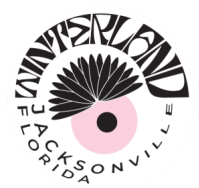The choice to choose between bottled water or tap water has become more significant in today’s world. It now affects our financial situation, environmental quality, and health. Comprehending the distinctions between these two water sources is essential to making decisions that are in line with goals and values.
Recognizing the Disparities
Tap water, which is obtained from municipal water supplies, is treated to guarantee safety and adherence to quality requirements set by the government. In contrast, bottled water, which comes in many forms and is subjected to varying degrees of filtration and treatment before bottling, includes spring water, mineral water, and purified water. Knowing the distinctions between tap vs bottled water enables you to make well-informed decisions about how much water to drink, taking into account aspects like cost, flavor, safety, and environmental impact.
Tap Water Safety and Regulations
To safeguard the public’s health, regulatory organizations, like the Environmental Protection Agency (EPA), establish and implement guidelines for the quality of tap water. Water treatment facilities use a variety of techniques, such as pH correction, disinfection, and filtration, to get rid of impurities and guarantee that tap water satisfies these requirements. Frequent testing and observation of tap water quality aids in identifying possible problems and guarantees adherence to safety standards.
Effect on the Environment
The fact that bottled water is usually sold in single-use plastic bottles adds to the problem of plastic waste throughout the world. These bottles frequently wind up in landfills or the ocean, where their slow decomposition affects ecosystems and marine life over hundreds of years. Furthermore, energy and resources are needed for the manufacture and delivery of bottled water, which results in greenhouse gas emissions and environmental damage. Tap water, on the other hand, is a more environmentally friendly option for everyday hydration because it doesn’t require long-distance transportation or plastic packaging.
Regarding Costs
Since municipal water systems usually supply tap water at a far lower cost than bottled water, it is significantly less expensive than bottled water. Even with electricity costs included, the price of tap water is still far less than what it would cost to buy bottled water frequently. On the other hand, the expenses associated with manufacturing, packaging, shipping, and marketing make bottled water more expensive. Choosing tap water instead of bottled water can save a lot of money in the long run, making it a more economical decision for families and individuals.
Health Advantages and Hazards
Important minerals that are good for general health, such as calcium and magnesium, are frequently found in tap water. But, certain sources of tap water could have impurities like lead or bacteria, which, if left untreated, could be harmful to your health. In addition to possibly containing microplastics from plastic bottles, bottled water may be deficient in vital minerals that are present in tap water and could have long-term health effects. When deciding between tap and bottled water, consumers need to take into account factors like water quality, filtering techniques, and any toxins to make sure their health and well-being are being maintained.
Sustainability and Consumer Choice
Selecting between tap and bottled water is a decision where consumer choice and sustainability collide. You can lessen your dependence on single-use plastic bottles and lessen their environmental effects by choosing sustainable alternatives like reusable water bottles and water filtration devices. Purchasing these substitutes not only encourages sustainability but also results in long-term financial savings because bottled water has no ongoing expenses.
Conclusion
You can make well-informed decisions that are consistent with your beliefs by considering variables like affordability, health advantages, and sustainability. Consider the wider effects of your decision and make an effort to make sustainable choices that are good for the environment and you. You have the last say in the matter, regardless of whether you select bottled water for its convenience or tap water for its cost and safety.

